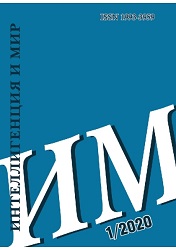К вопросу об использовании принудительного труда научно-технической интеллигенции в СССР в конце 1920-х — 1930-е гг.
To the issue of the exploitation of the forced labor of the scientific and technical intelligentsia in the USSR in the late 1920—1930s
Author(s): Irina Nikolayevna FedotovaSubject(s): Political history, Social history, Labor relations, Government/Political systems, Higher Education , History of Education, State/Government and Education, Interwar Period (1920 - 1939)
Published by: Ивановский государственный университет
Keywords: scientific and technical intelligentsia; forced labor; the Soviet Union; industrialization; repressions; the GULAG; convicts; the Russian historiography;
Summary/Abstract: The author of this paper notes the key tendencies in the historiographical study of the given topic and tries to identify the promising areas of the further research of “the GULAG” stage in the history of the Russian scientific and technical intelligentsia. The analysis of the historical literature presented in the article has allowed the author to draw the following conclusions. For today almost all historians recognize the fact that repressions, which were subjected to the scientific and technical intelligentsia in the USSR in the late 1920s—1930s, had planned, organized character and were conditioned of the change of domestic political priorities of the Soviet government. The curtailment of the NEP and the transition to the accelerated industrialization, which was carried out by methods of non-economic coercion, pushed the ruling elite led by Stalin to the ruthless suppression of intelligentsia as the social force which not only shared the principles of the NEP but also made a significant practical contribution to the implementation of that doctrine. Tens of thousands of people were imprisoned due to the obviously illegal criminal prosecution of specialists. Based on extensive documentary materials from declassified archival funds the researchers convincingly show that the GULAG was in dire need of highly qualified personnel since the punitive Department played one of the key roles in the process of the industrialization. These conceptual provisions seem to be generally accepted in the modern Russian historiography. The practice of compulsory attraction of specialists to work has been much less studied. Further development of the topic requires analysis of a wide range of materials reflecting the use of forced labor of the scientific and technical intelligentsia as in the whole GULAG and within different industries and regions. Detailed study of these issues will allow historians to take important steps in the research of economic efficiency of the GULAG.
Journal: Интеллигенция и мир
- Issue Year: 2020
- Issue No: 1
- Page Range: 75-91
- Page Count: 17
- Language: Russian

